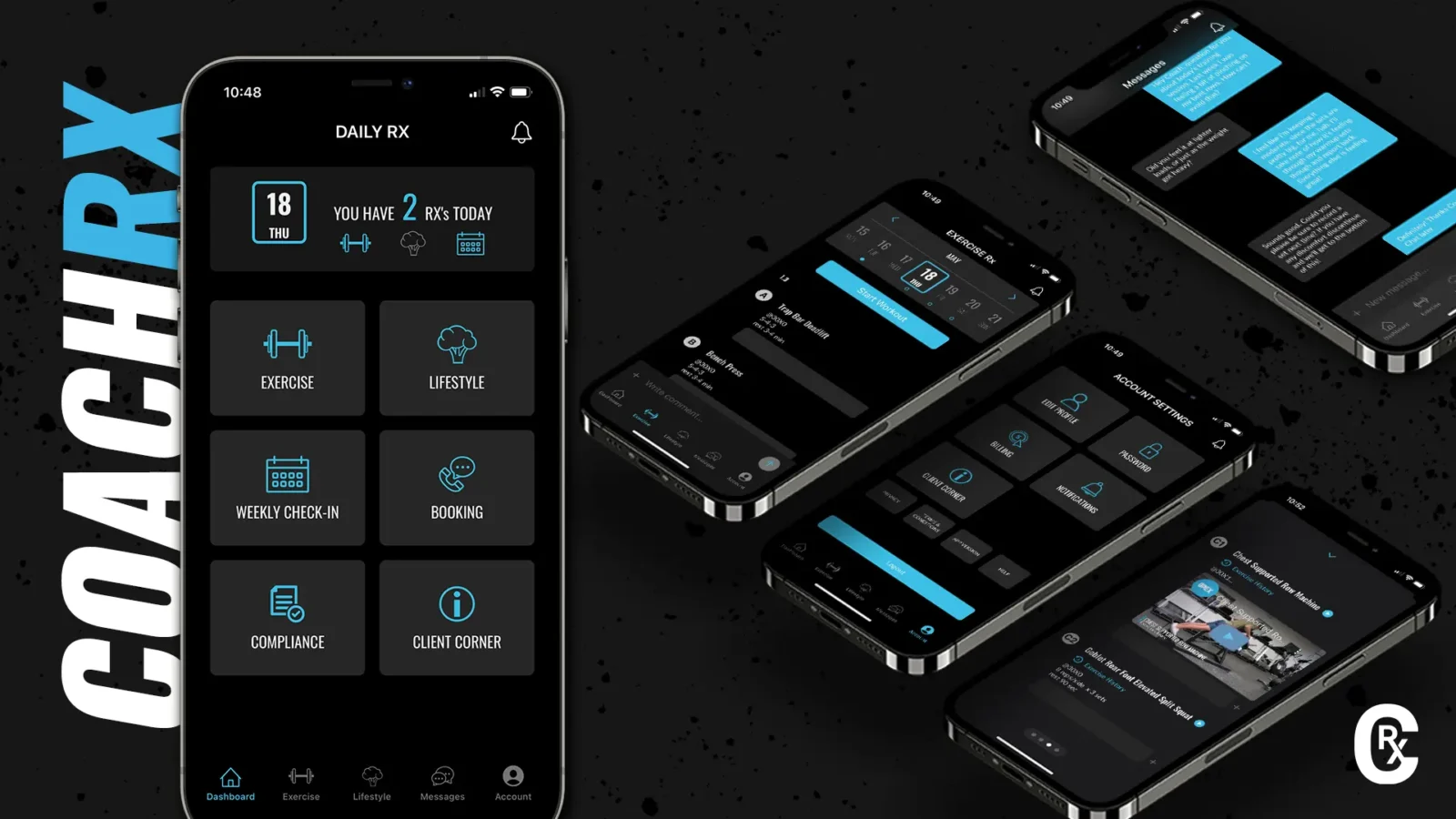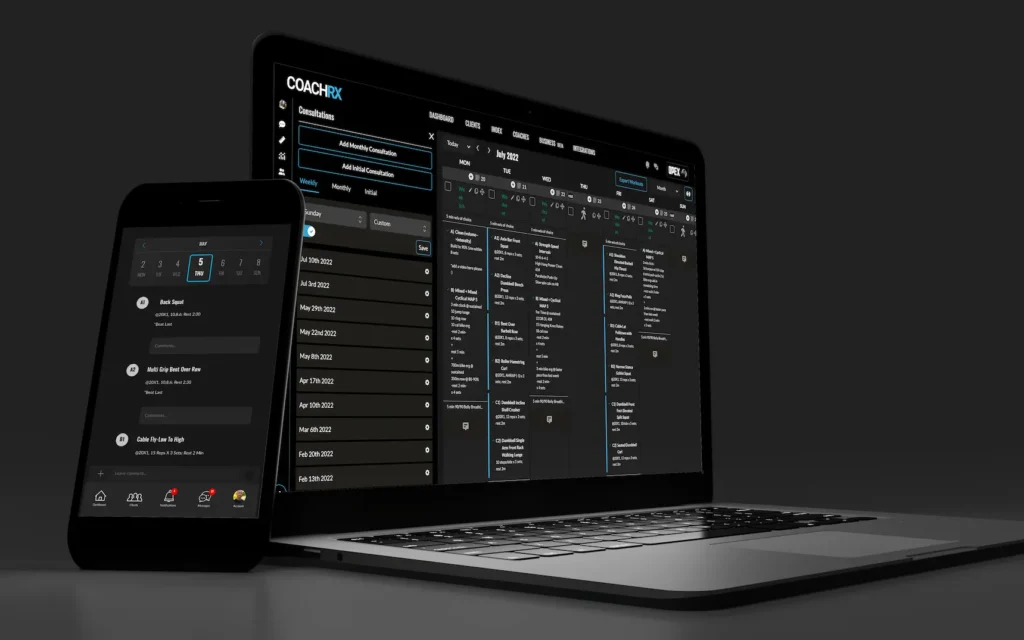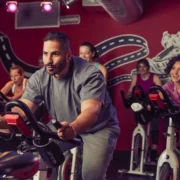How CoachRx Helps Fitness Coaches Become Master Communicators
Partnership
Sponsored By OPEX Fitness

Built by the pros at OPEX Fitness, CoachRx’s software allows fitness coaches to deliver personalized support to their entire client base
OPEX is on a mission to build the ultimate software for fitness coaches.
In 2021, the fitness coaching education company introduced CoachRx, a software suite designed to give fitness coaches an all-in-one product they can use to increase the value of their business.
For OPEX Fitness CEO Carl Hardwick, the best way to describe how CoachRx stands out from the many personal training and fitness coaching apps on the market is to make use of an old cliche.
“For coaches built by coaches,” Hardwick says. “That phrase is so overused, but it’s actually true from our standpoint.”

Since the OPEX team is made up of people with fitness coaching experience, CoachRx contains the types of features only fitness coaches themselves would think to include.
“A lot of our features are connected to problems that we’ve had in the past with other systems, problems that coaches face or problems that we create based on what we think is important and what coaches aren’t executing on,” Hardwick explains.
CoachRx has four chief selling points, according to Hardwick.
It helps coaches build better relationships with their clients, run their business operations more smoothly and professionalize their services. Lastly and perhaps most importantly, it’s built by fitness coaches who are committed to constantly improving the software based on user and internal feedback.
As part one of a two-part series, this article will explore how CoachRx helps fitness coaches become better communicators and build deeper relationships with their clients.
Automated check-ins
Fitness coaches must strike a delicate balance between reaching out to their clients on a regular basis and not annoying them with repeated messages. That can be hard to manage for coaches with dozens or even hundreds of clients.
To address the problem, CoachRx has a feature called weekly check-ins. Coaches can create weekly check-in templates based on their client’s unique goals and then arrange for messages to get delivered to their client’s app on the same day each week.
“It could be movement outside of the gym, staying consistent in the gym, or maybe you’re finishing up university and you’re focusing on some things there,” Hardwick explains. “Coaches can ask very targeted questions that are individualized to the client.”

Keeping coaches accountable
One problem Hardwick and his OPEX colleagues ran into with their old fitness coaching software was its inability to help coaches track whether they were actually staying in touch with their clients.
“We would give best practices and say, ‘Coaches, you need to be communicating with your clients a set number of times per week,’” Hardwick recalls. “And they were like, ‘How do we track that goal?’ There really wasn’t a good way to do it in that system.”
CoachRx includes a feature called touchpoints, which keeps track of every time a coach sends a message to a client or has a consultation with them.
Organizations can set touchpoint goals to keep individual coaches accountable.
“Let’s say there are three of us in an organization and I say, ‘Guys, we need to communicate with every single one of our clients at least three times a week.’ I would set that as a goal and CoachRx is going to track that,” Hardwick explains.
On their CoachRx dashboards, coaches can view a touchpoint progress bar that shows which clients they’ve reached out to and which ones they haven’t yet spoken with.
Turn consultations into action
Many fitness coaching apps feature a clunky interface for managing client consultations. Hardwick explains that with OPEX’s old software provider, fitness coaches had to take the notes they took during consultations and manually transform them into something that could be delivered to a client.
It may seem like a minor inconvenience, but it eats up a lot of time for the busy fitness coach.
CoachRx has a built-in text box that allows coaches to take notes during a consultation and then seamlessly export those notes into client-facing communications.
“Say I have a 30-minute consultation with a client and I have my personal notes that are for me only. Maybe that’s me bad talking to you in my own way,” Hardwick jokes. “But then I have my public-facing notes, and I can export those public-facing notes into a beautiful PDF which includes my logo and the client’s name.”
CoachRx users have been vocal in their appreciation for the product. Austin Kapetanakis mentions the software to his clients as a key reason why they should choose him over other fitness coaches.
“This is a one-stop-shop, easy-to-use platform that simplifies your client experience,” Kapetanakis tells his clients. “In the app you get everything you need to succeed as my client, including a place to upload videos for feedback, a database for your fitness workouts and history, and detailed reports of your progress over time.”
AI can help coaches build better relationships
While some in the fitness coaching community are apprehensive about the potential job-killing effects of AI and tools like ChatGPT, Hardwick takes a more optimistic view
“We’re getting into the artificial intelligence game as we speak,” he shares. “It’s such a massive efficiency that coaches can leverage.”
For coaches who are good communicators and provide value to their clients outside of just drawing up a workout routine, AI will be a net positive, Hardwick believes.
“If my value proposition is only my program design and I don’t have anything else, I’m dead, AI just took my job,” Hardwick says. “But if my value proposition is, I’m the intermediary that’s connecting you to that program design, I’m building a relationship with you, I’m keeping you accountable and we’re having conversations, then I’m hoping and praying that AI comes really quickly, because I’m just going to have it do the stuff that anyone can do.”
Among its many potential applications, Hardwick can foresee a scenario where CoachRx uses AI to help coaches write better messages to their clients based on notes they took during a consultation.
“You tell the AI, ‘I want you to summarize this for my client in a very succinct way,'” Hardwick explains. “And it takes those notes and it writes out a nice summary from coach to client.”
Stay tuned for next week’s article on how CoachRx helps fitness coaches run their businesses and professionalize their services.
In the meantime, check out CoachRx’s free Getting Started Guide and 14-day free trial.



